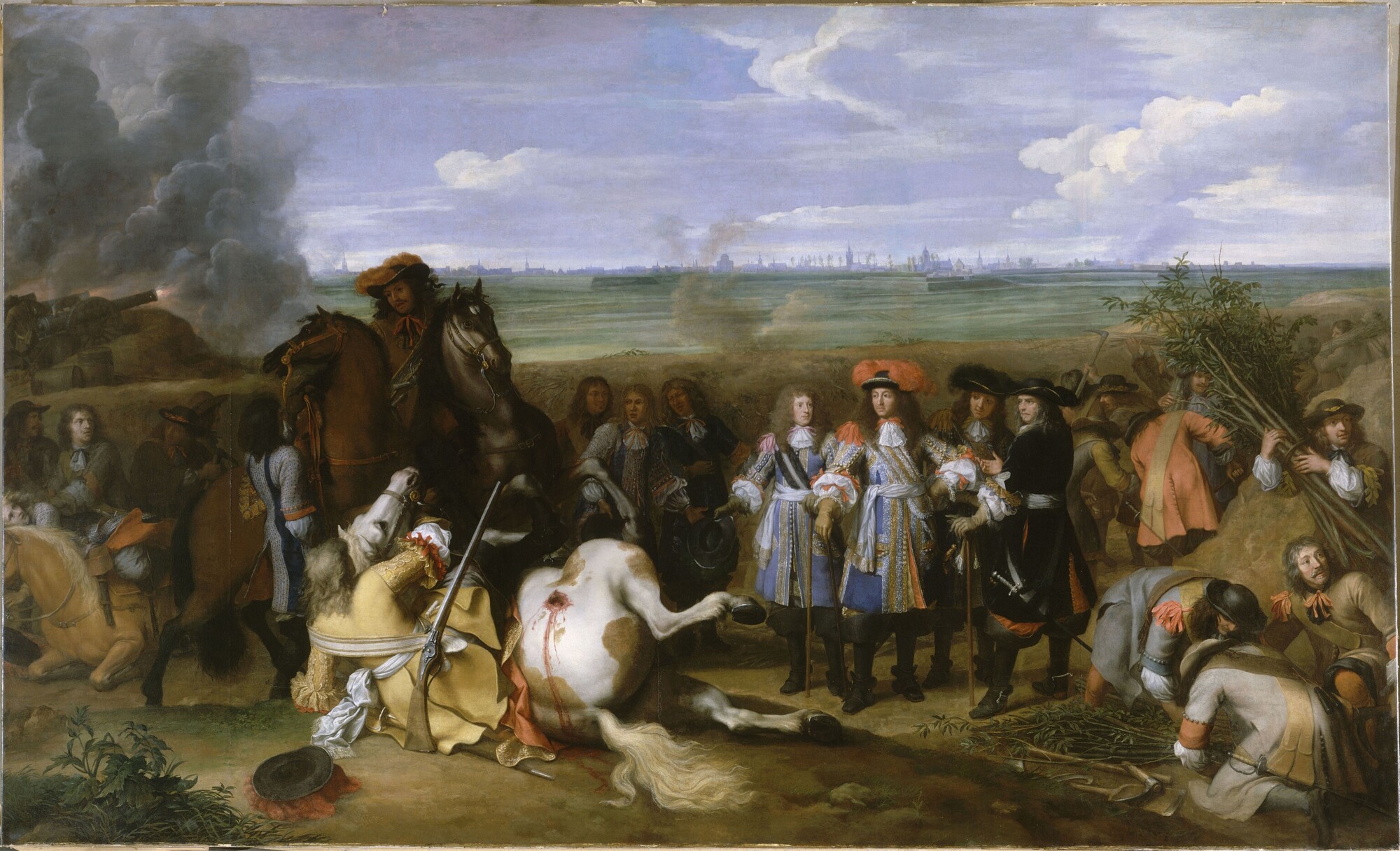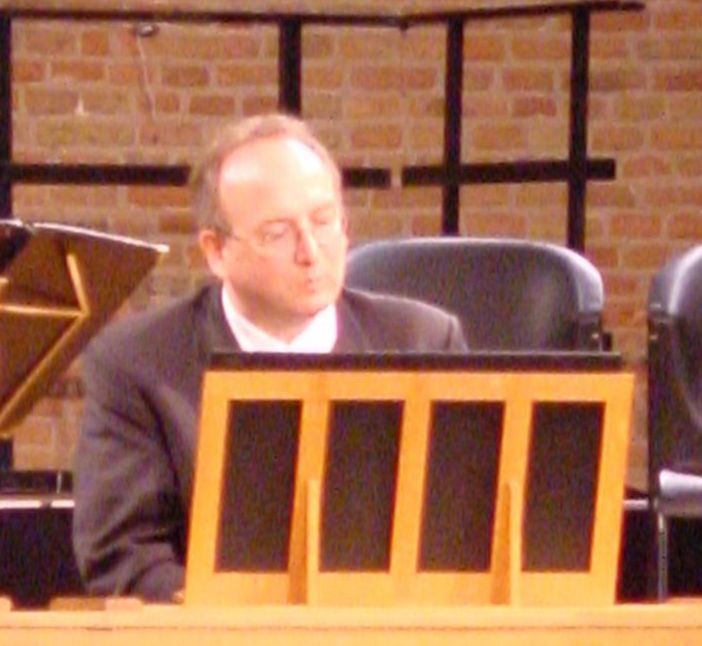|
Francesco Manelli
Francesco Manelli (Mannelli) ( 1595 – 1667) was a Roman Baroque composer, particularly of opera, and a theorbo player. He is most well known for his collaboration with fellow Roman composer Benedetto Ferrari in bringing commercial opera to Venice. The first two works, in 1637 and 1638, to be put on commercially in the Teatro San Cassiano were both by Manelli - his ''L'Andromeda'' and ''La Maga Fulminata''. Francesco Manelli was for many years confused with the Franciscan friar Giovanni Battista Fasolo, because of the resemblances between Manelli's cantata ''Luciata'', (published in ''Musiche varie,'' op. 4 Venice, 1636), and Fasolo's dialogue ''Il carro di Madama Lucia'' (Rome, 1628), and the shared text of the first piece in both collections. In a comparison of the two cantatas Fasolo's version is "languid and melancholy", while Manelli's version is "spirited and biting". A mid-14th-century Florentine scholar of the same name, also called ''dei Pontigiano'', was a close ... [...More Info...] [...Related Items...] OR: [Wikipedia] [Google] [Baidu] |
Baroque
The Baroque (, ; ) is a style of architecture, music, dance, painting, sculpture, poetry, and other arts that flourished in Europe from the early 17th century until the 1750s. In the territories of the Spanish and Portuguese empires including the Iberian Peninsula it continued, together with new styles, until the first decade of the 19th century. It followed Renaissance art and Mannerism and preceded the Rococo (in the past often referred to as "late Baroque") and Neoclassical styles. It was encouraged by the Catholic Church as a means to counter the simplicity and austerity of Protestant architecture, art, and music, though Lutheran Baroque art developed in parts of Europe as well. The Baroque style used contrast, movement, exuberant detail, deep colour, grandeur, and surprise to achieve a sense of awe. The style began at the start of the 17th century in Rome, then spread rapidly to France, northern Italy, Spain, and Portugal, then to Austria, southern Germany, and Rus ... [...More Info...] [...Related Items...] OR: [Wikipedia] [Google] [Baidu] |
Bernardo Morando
Bernardo Morando, also known as ''Bernardino'' or ''Morandi'' (ca. 1540 - 1600) was an Italian architect from the Republic of Venice. He is notable as the designer of the ''new town'' of Zamość, modelled on Renaissance theories of the 'ideal city'. Born around 1540 in either Padua or Venice, Morando moved to Poland in 1569, where he started working as an architect. On 1 July 1578 he signed an agreement with Jan Zamoyski, one of the wealthiest men of the Polish–Lithuanian Commonwealth for a project of an ideal city and fortress for the founder. The extreme opulence that Poland's nobility enjoyed during the Renaissance left Poland's elites with not only obscene amounts of money to spend, but also motivated them to find new ways to invest their hefty fortunes away from the grasp of the Royal Treasury. Zamoyski, Great Crown Chancellor and Hetman whose financial empire within the Polish Republic spanned 6400 km2 with 11 cities and over 200 villages, in addition to the royal la ... [...More Info...] [...Related Items...] OR: [Wikipedia] [Google] [Baidu] |
Italian Baroque Composers
Italian(s) may refer to: * Anything of, from, or related to the people of Italy over the centuries ** Italians, an ethnic group or simply a citizen of the Italian Republic or Italian Kingdom ** Italian language, a Romance language *** Regional Italian, regional variants of the Italian language ** Languages of Italy, languages and dialects spoken in Italy ** Italian culture, cultural features of Italy ** Italian cuisine, traditional foods ** Folklore of Italy, the folklore and urban legends of Italy ** Mythology of Italy, traditional religion and beliefs Other uses * Italian dressing, a vinaigrette-type salad dressing or marinade * Italian or Italian-A, alternative names for the Ping-Pong virus, an extinct computer virus See also * * * Italia (other) * Italic (other) * Italo (other) * The Italian (other) The Italian may refer to: * ''The Italian'' (1915 film), a silent film by Reginald Barker * ''The Italian'' (2005 film), a Russian film ... [...More Info...] [...Related Items...] OR: [Wikipedia] [Google] [Baidu] |
People From Tivoli, Lazio
A person ( : people) is a being that has certain capacities or attributes such as reason, morality, consciousness or self-consciousness, and being a part of a culturally established form of social relations such as kinship, ownership of property, or legal responsibility. The defining features of personhood and, consequently, what makes a person count as a person, differ widely among cultures and contexts. In addition to the question of personhood, of what makes a being count as a person to begin with, there are further questions about personal identity and self: both about what makes any particular person that particular person instead of another, and about what makes a person at one time the same person as they were or will be at another time despite any intervening changes. The plural form " people" is often used to refer to an entire nation or ethnic group (as in "a people"), and this was the original meaning of the word; it subsequently acquired its use as a plural ... [...More Info...] [...Related Items...] OR: [Wikipedia] [Google] [Baidu] |
1667 Deaths
Events January–March * January 11 – Aurangzeb, monarch of the Mughal Empire, orders the removal of Rao Karan Singh as Maharaja of the Bikaner State (part of the modern-day Rajasthan state of India) because of Karan's dereliction of duty in battle. * January 19 – The town of Anzonico in Switzerland is destroyed by an avalanche. * January 27 – The 2,000 seat Opernhaus am Taschenberg, a theater in Dresden (capital of the Electorate of Saxony) opens with its first production, Pietro Ziani's opera ''Il teseo''. * February 5 – In the Second Anglo-Dutch War, the English Royal Navy warship HMS ''Saint Patrick'' is captured less than nine months after being launched, when it fights a battle off the coast of England and North Foreland, Kent. Captain Robert Saunders and 8 of his crew are killed while fighting the Dutch ships ''Delft'' and ''Shakerlo''. The Dutch Navy renames the ship the ''Zwanenburg''. * February 6 (January 27 O.S.) – ... [...More Info...] [...Related Items...] OR: [Wikipedia] [Google] [Baidu] |
1594 Births
Events January–June * March 21 – Henry IV enters his capital of Paris for the first time. * April 17 – Hyacinth of Poland is canonized. * May ** Uprising in Banat of Serbs against Ottoman rule ends with the public burning of Saint Sava's bones in Belgrade, Serbia. ** Nine Years' War (Ireland): Hugh O'Neill, 2nd Earl of Tyrone and Hugh Roe O'Donnell form an alliance to try to overthrow English domination. * June 5 – Willem Barents makes his first voyage to the Arctic Ocean, in search of the Northeast Passage. * June 11 – Philip II of Spain recognizes the rights and privileges of the local nobles and chieftains in the Philippines, which paves the way for the stabilization of the rule of the Principalía. * June 22– 23 – Anglo-Spanish War: Action of Faial – In the Azores, an English attempt to capture the large Portuguese carrack ''Cinco Chagas'', reputedly one of the richest ever to set sail from the East Indies, ca ... [...More Info...] [...Related Items...] OR: [Wikipedia] [Google] [Baidu] |
Stephen Stubbs
Stephen Stubbs (born 1951) is a lutenist and music director and has been a leading figure in the American early music scene for nearly thirty years. Born in Seattle, he studied harpsichord and composition at the University of Washington where, at the same time, he began playing the harpsichord and the lute. He left America after graduation to study the instrument in England and Holland and gave his debut concert in London's Wigmore Hall in 1976. From 1981 to 2013, Stubbs taught at the University of the Arts Bremen in Germany. In 2013, he became an artist in residence at the University of Washington in Seattle. He has performed extensively with his ensembles Tragicomedia and Teatro Lirico, Kozinn, Allan (2000)The Rare Crossover With Many Rewards, ''The New York Times'', June 18, 2000, retrieved 2011-07-13 and conducted baroque operas worldwide. He has recorded numerous albums with other famous ensembles like the Hilliard Ensemble and with Andrew Lawrence-King. He moved back to Seatt ... [...More Info...] [...Related Items...] OR: [Wikipedia] [Google] [Baidu] |
Derek Lee Ragin
Derek Lee Ragin (born June 17, 1958) is an American countertenor. Biography">Derek Lee Ragin > Biographyallmusic Early life Derek Ragin was born in West Point, New York and grew up in Newark, New Jersey. He began his formal voice training with the Newark Boys Chorus, and studied as a piano and music education major at the Oberlin Conservatory of Music. While at Oberlin, he also took secondary voice lessons with Richard Anderson, and began his operatic career at Oberlin in Benjamin Britten's ''A Midsummer Night's Dream'' as Oberon. After leaving Oberlin, Ragin worked with singer Max van Egmond for a summer session at BPI and went to Europe to pursue his career in Baroque opera. Career Ragin gained fame by winning the 1983 Purcell-Britten Prize for Concert Singers in England, the Prix Spécial du Jury du Grand Prix Lyrique de Monte Carlo in 1988, and First Prize at the 35th ARD International Music Competition in Munich in 1986. He had made his London recital debut at Wigmore Hal ... [...More Info...] [...Related Items...] OR: [Wikipedia] [Google] [Baidu] |
Suzie LeBlanc
Suzie LeBlanc (born 27 October 1961) is a Canadian soprano and early music specialist. She is also active as a professor, currently working at Mcgill University. She was named a member of the Order of Canada in 2014 for her contributions to music and Acadian culture. Early life and education Suzie LeBlanc was born into an Acadian family in Edmundston, New Brunswick. Her mother, Marie-Germaine Leblanc, was an operatic soprano and singing teacher. As a child LeBlanc played the piano and flute, and was a member of the youth choir Les Jeunes Chanteurs d'Acadie. In 1976 LeBlanc moved with her family to Montreal, where she was first exposed to baroque music at a concert of the Studio de musique ancienne de Montréal and experienced what she later called "love at first sight" for the music. From 1979 to 1981 she studied harpsichord and voice at the Cégep de Saint-Laurent, with harpsichord as her major subject. Career As a singer LeBlanc specializes in the 17th and 18th century r ... [...More Info...] [...Related Items...] OR: [Wikipedia] [Google] [Baidu] |
Francesco Berni
Francesco Berni Francesco Berni (1497/98 – 26 May 1535) was an Italian poet. He is credited for beginning what is now known as "Bernesque poetry", a serio-comedic type of poetry with elements of satire. Biography Life Berni was born 1497 or 1498 in Lamporecchio (Tuscany). His father Nicolò was a doctor of a long-established Florentine family, but excessively poor. At an early age he was sent to Florence, where he remained until his nineteenth year and wrote a pastoral play, ''Catrina''. In 1517 he set out for Rome, in the service of Bernardo Dovizi, Cardinal Bibbiena. After the cardinal's death (1520), he was thrown on his own devices. At the time of the election of Adrian VI he circulated witty lampoons, for which he was obliged for a time to leave Rome. Later he returned to accept a situation as clerk or secretary to Gian Matteo Giberti, datary to Clement VII. The duties of his office, for which Berni was in every way unfit, were exceedingly irksome to the poet, who, ho ... [...More Info...] [...Related Items...] OR: [Wikipedia] [Google] [Baidu] |

_1938.jpg)

.jpg)

